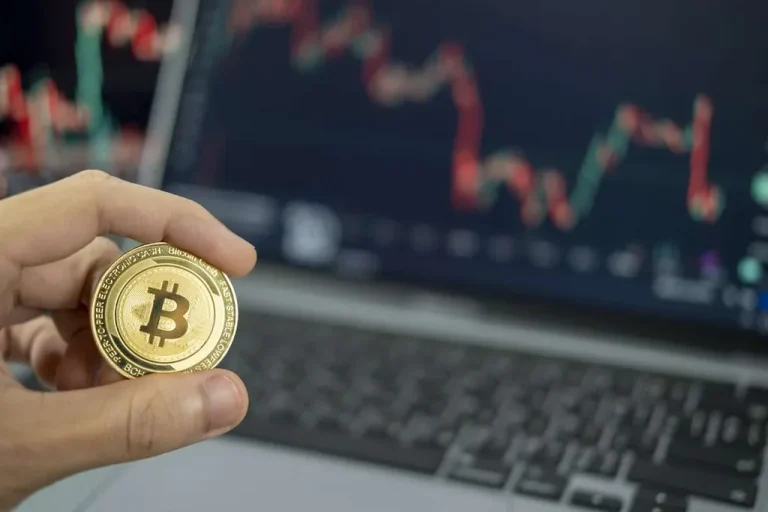Content
On the other hand, even though smart contracts are rules-based, the lack of an intermediary third party means that the user is left to their own, so DEXs are meant for sophisticated investors. We clarify the most frequently asked questions about wallets to give you a comprehensive overview. It has been covered by top-tier newspapers and regional media houses across India, setting a new standard for trust and accountability in the global marketplace. In your search, dig deep; look for stories that the exchange would not want potential customers to see. There may be news Smart contract stories about the exchanges or legal actions brought against them by regulators that might demonstrate an exchange’s ethics and practices. There have been many cases of malware disguised as wallets, so it is advisable to research carefully before deciding which one to use.
Trading platforms for cryptocurrencies: differences between crypto brokers and exchanges
Most crypto exchanges will include some fee for your transactions; these can be based on the transaction size, or difference between crypto wallet and exchange they may depend on your activity level. First, check CoinMarketCap’s or CoinGecko’s list of cryptocurrency spot exchanges. These aggregator services rank exchanges on traffic, liquidity, trading volume, and legitimacy or trust to help viewers decide where to trade. These sites will have summaries of each exchange, supported cryptos, whether they are centralized and registered, decentralized, and more. Cryptocurrency exchanges are online platforms hosted by companies or other entities that make it convenient for users to purchase and sell cryptocurrency.
What are the Pros and Cons of Wallets?
- In numerous articles and videos, we address various topics from the crypto and financial sector and offer lessons for beginners, advanced users and experts.
- A centralized cryptocurrency exchange is a digital platform that is operated by a company or organization.
- Here you’ll find more information about cryptocurrency trading, how it works and what moves the markets.
- Our team then test-drove each wallet to lend their qualitative point of view.
- To ensure the security of your crypto assets, it’s crucial to take necessary precautions when using a crypto wallet.
- This is because they minimize the risk of online attacks by giving you control over the private key.
Amilcar has 10 years of FinTech, blockchain, and crypto startup experience and advises financial institutions, governments, regulators, and startups. The “private” part of this process is assigning a 256-bit hexadecimal number that they know by keeping it invisibly protected on their device(s) or by storing it in various encrypted storage media. In the BitPay Wallet app, you can find this by selecting “My Key” on the home screen, tapping into your wallet, tapping the three dots in the upper right corner, and finally selecting “Share Address”. From here you can write down your wallet address or copy it to your clipboard for the next steps. Users https://www.xcritical.com/ should consider their cryptocurrency strategy — focusing on long-term holding or frequent trading — to decide which option best suits their needs.
Benefits of Non-Custodial Crypto Wallets

The financial world uses these exchanges to facilitate trades so as to avoid the risks of counterparties not following through on traditional dealings. However, decentralized exchanges can be less user-friendly than centralized exchanges, and they often have lower liquidity and fewer trading options. In addition, they can be slower and more expensive to use due to the decentralized nature of the blockchain network. Web wallets are online wallets that can be accessed through a web browser.
Custodial wallets, like those on crypto exchanges, usually offer unlimited storage, but you do not retain control over the private keys. This type of exchange is suitable for people who don’t own any crypto yet, since they can buy some cryptocurrency from users who already hold them. Investors who decide to trade their coins back for traditional money can withdraw funds to their bank accounts at any time. Instead, it stores users’ public and private keys and facilitates the management of their cryptocurrency balances. Which exchange is best depends on your preferences, the fees you’re charged, and your comfort level. If you prefer peer-to-peer exchanges without an intermediary, decentralized exchanges like PancakeSwap, UniSwap, SushiSwap, or dYdX are popular.
The following are the top centralized cryptocurrency exchanges, according to traffic, liquidity, and trading volumes. The choice of the right wallet depends on individual needs and the desired balance between convenience and control. For daily transactions and trades, exchange wallets can be ideal, while for long-term investments and larger sums, a personal wallet offering more control and security is recommended. As the popularity of cryptocurrencies increases, so does the presence of malicious actors looking to exploit unsuspecting users. Trading and storing cryptocurrency securely requires a comprehensive understanding of best practices and proactive measures. Remember, in crypto, security is not a luxury but a necessity for responsible and resilient participation in this volatile ecosystem.
If you’d like to know more, visit the Cointree Learning Hub for smart tips on choosing the right exchange or for time-tested trading and investment principles to get you started. However, because cryptocurrencies sit separate from governments and other global institutions they are – to a large extent – insulated from political influences. Your wallet is not fully decentralized as Crypto.com is the wallet custodian. If you lose your recovery phrase, you will not be able to access your wallet and crypto.

Crypto wallets give customers authority over their assets and private keys while providing a safe way to store crypto. On the other hand, because cold wallets remain offline, they greatly improve security by separating funds from online dangers. Hardware wallets and paper wallets fall under this category and are perfect for storing cryptocurrency securely over an extended period.

Many so-called “safe” wallets have wireless connection technology that determined cybercriminals can access. Early crypto users would write or type their keys on paper, which they called paper wallets. These evolved to include the keys and QR codes so wallets on mobile devices could scan them. However, paper wallets are easily damaged or lost, so many crypto owners do not use them anymore. Hardware wallets are generally considered cold wallets because they don’t have an active connection until they are plugged in. You can make a cryptocurrency transaction on your computer or device by plugging in the hardware wallet.
With IG, you can trade cryptocurrencies via a CFD account – derivative products that enable you speculate on whether your chosen cryptocurrency will rise or fall in value. Prices are quoted in traditional currencies such as the US dollar, and you never take ownership of the cryptocurrency itself. We want to clarify that IG International does not have an official Line account at this time. Therefore, any accounts claiming to represent IG International on Line are unauthorized and should be considered as fake. 71% of retail client accounts lose money when trading CFDs, with this investment provider. Please ensure you understand how this product works and whether you can afford to take the high risk of losing money.
These online platforms operate as digital marketplaces accessible through mobile or desktop applications. Beyond simple buying and selling, many crypto exchanges offer advanced trading options like futures and options trading, margin trading, and lending,… A crypto wallet is a platform for storing, sending, and receiving cryptocurrency. Because it gives users a way to interact with digital assets, this tool is essential for anyone who utilises virtual currencies. As cryptocurrencies continue to gain popularity, more and more people are looking for ways to securely buy, sell, store, and manage their digital assets.
Users of these exchanges may suffer significant financial losses as a result of security breaches. Users must first create a self-custody wallet, either by purchasing a hardware wallet or choosing a software-based wallet. Once the wallet is set up and the user has recorded their seed phrase (and stored them securely offline), one must find their crypto wallet address, which is a unique identifier used for receiving funds.
Some, like the BitPay Wallet, come with added benefits of a free crypto debit card, opportunity to turn crypto into gift cards, plus other ways to spend crypto. Exchanges offer easy trading, but they hold onto your private key when you use them. Crypto wallets give you power over your keys, which is crucial for crypto safety. Keeping these keys safe means your crypto is less likely to face risks from centralized vulnerabilities.
If you happen to be their owner, you automatically own any coins those keys can access. Thus, if you want full control over your cryptocurrencies, and have easy access, a cryptocurrency wallet is the route to take. Moreover, a crypto wallet tends to give its user more peace of mind since you know exactly where your assets are being stored. Your private keys are, by far, the most important component of your cryptocurrency wallets.




